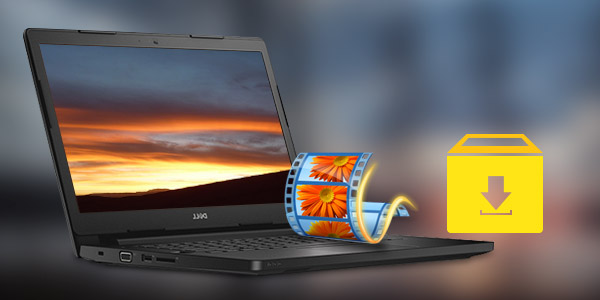
Video advertising has emerged as a crucial instrument in the arsenal of marketers striving to engage their target audience effectively. In fact, an impressive 86% of marketers have already integrated video content into their strategic initiatives. With the proliferation of online platforms and the popularity of streaming services, video ads hold the potential to connect with vast audiences.
Nonetheless, navigating the terrain of video advertising is not always a smooth voyage. It is rife with potential pitfalls in the form of common video ad errors, which, if left unaddressed, can disrupt your marketing endeavors and squander your precious budget.
In this article, we embark on a journey to uncover the five most prevalent video ad errors and furnish you with invaluable insights on rectifying them. By addressing these issues, you can fortify your advertising campaigns and maximize their effectiveness.
Table of Contents
VAST Errors
VAST (Video Ad Serving Template) errors refer to issues or problems that can occur during the delivery and playback of video ads on digital platforms, particularly within the context of programmatic advertising and online video advertising. VAST is a standard protocol used by video ad servers to communicate with video players on websites and apps, ensuring that video ads are displayed correctly and in a consistent manner across various platforms. VAST errors can disrupt this process and result in ad playback issues. There are different VAST error codes signaling a different problem that needs to be fixed.
Fixing VAST errors is crucial for advertisers and publishers to ensure that video ads are delivered as intended to the target audience. Common strategies to address VAST errors include reviewing and validating VAST tags, ensuring proper configuration of ad servers and video players, and regularly testing ad delivery to identify and rectify issues. Ad tech professionals often use third-party VAST validation tools to check for errors before launching ad campaigns to minimize disruptions and improve the overall ad experience for viewers.
Poor Video Quality
One of the most common video ad errors is poor video quality. A video with low resolution, pixelation, or other visual issues can turn off viewers and damage your brand’s image. To fix this error, start by ensuring your video is shot or produced in high resolution, ideally 1080p or higher. Use professional equipment or hire a skilled videographer to capture your content. Additionally, pay attention to lighting, framing, and color grading to enhance the overall quality of your video.
Another crucial aspect of video quality is compression. Overcompressed videos can lead to pixelation and degradation. Optimize your video for online streaming platforms by following their recommended encoding settings. This will ensure your video maintains its quality when it’s viewed on different devices and internet connections.
Lack of Targeting
Ineffective targeting is another common video ad error. If your video ads are reaching the wrong audience, your marketing efforts are futile. Fix this error by defining your target audience clearly. Consider demographics, interests, online behavior, and geographic location. You can use various advertising platforms’ targeting options to narrow down your audience and make your campaigns more relevant.
Furthermore, use data analytics to refine your targeting strategy over time. Analyze the performance of your video ads, and adjust your targeting parameters based on what works and what doesn’t. This iterative process will help you reach the right people with your video ads.
Lengthy Videos
Long and drawn-out video ads are a surefire way to lose your viewers’ attention. This is a common video ad error that can significantly impact your campaign’s effectiveness. To fix it, focus on creating concise and engaging videos. Ideally, aim for a video length of 15 to 30 seconds. Keep your message clear and concise, and avoid unnecessary fluff or lengthy introductions.
Consider using storytelling techniques to convey your message effectively within the time constraints. Engage the viewers from the start, maintain their interest throughout the video, and deliver a strong call to action at the end. By doing so, you’ll keep your audience engaged and increase the chances of achieving your advertising goals.
Neglecting Mobile Optimization
In today’s digital landscape, it’s essential to optimize your video ads for mobile devices. Neglecting mobile optimization is a common video ad error that can lead to missed opportunities. Ensure your videos are responsive and look good on various screen sizes. Use vertical or square video formats to make the most of mobile screen real estate.
Moreover, consider the sound element. Many mobile users watch videos without sound, so it’s crucial to include captions or subtitles to convey your message effectively. Additionally, make sure your landing pages or websites are mobile-friendly and load quickly. A seamless mobile experience will improve your ad’s performance and user engagement.
Ignoring A/B Testing
A lack of A/B testing is a significant video ad error that can hinder your campaign’s success. Without testing different ad elements, you might miss out on opportunities to improve your video ads. To fix this error, embrace A/B testing as an integral part of your advertising strategy. Experiment with various aspects of your videos, such as different headlines, calls to action, or visual elements. Test different audience segments and ad placements to identify what works best for your campaign.
Additionally, analyze the results of your A/B tests carefully. Use data to make informed decisions about which elements are driving better performance. Continuously optimize your video ads based on the insights gained through testing to ensure your campaigns are as effective as possible.
Bottom Line
Video advertising engages your audience effectively. However, common video ad errors can hinder your marketing efforts and waste your budget. To ensure success, address these errors proactively. Remember, the world of digital marketing is always evolving, so stay informed about the latest trends and technologies to stay ahead in the competitive landscape of video advertising.







